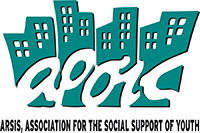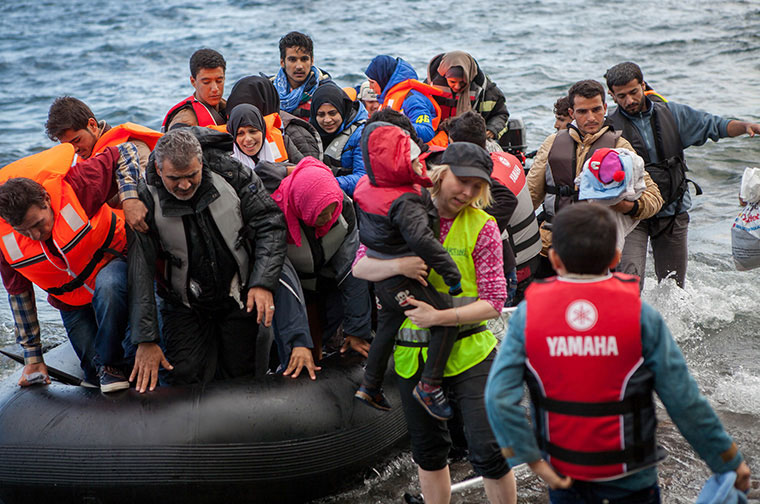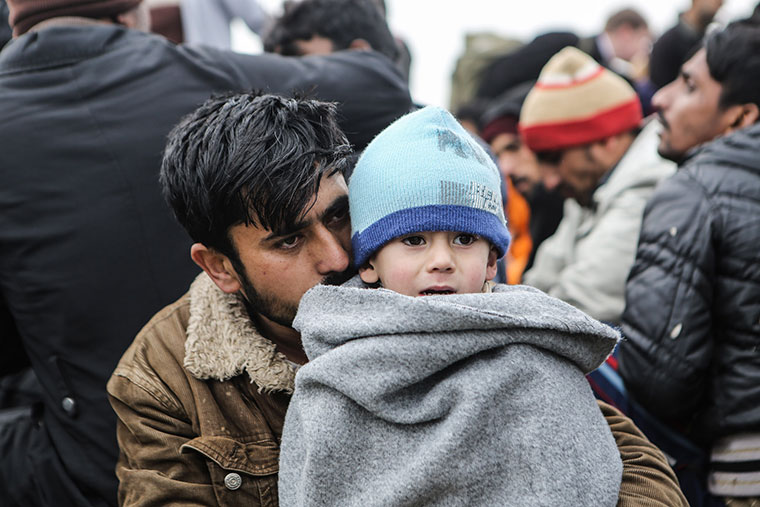
Greece
COVID-19 INFORMATION
NOTE: On March 16th 2020 ARSIS had to make the difficult, but considering the situation wise decision, to pause face to face appointments with beneficiaries. Pausing face to face appointments with beneficiaries is considered to be the best decision possible in the context of protection measures against COVID-19 spread and of protection of beneficiaries’ and ARSIS’ staff health and wellbeing.
ARSIS’ staff members remain in the office (Monastiriou 12, Thessaloniki) on a daily basis in order for urgent cases to be served, as well as for the communication with other NGOs and state units to be continued.
Hygiene measures are taken for the care of the office and for the care of the personnel and the beneficiaries. ARSIS’ PIER staff members work in the office in shifts currently and from their home the rest of the time. THE PIER team of professionals remain in direct contact with each other through telecommunication and have online meetings three times per week.
The team is trying to adjust to the new, hopefully only temporary situation and to support beneficiaries through this phase the best way possible: All our beneficiaries were instantly informed about COVID-19 and about protection measures. They are constantly being informed about news and updates regarding the global pandemic. The professionals are in direct communication with beneficiaries through telephone and/or skype, Viber and WhatsApp and are evaluating their needs, trying to support them the best way possible. Sessions of psychological and psychosocial support are held through telecommunication means, in the cases where this is possible. Beneficiaries that are receiving psychiatric medication are still able to receive their medication. They are getting their medication from our office under the care and directions of the team’s psychiatrist. Services to urgent cases continue to be offered face to face whenever that is considered necessary. This is a crisis that affects all of us. The team's professionals are trying to adjust to the situation having as a priority the physical and psychological health of beneficiaries. Together we can overcome this!
The current PIER Program in Greece continues to be implemented by ARSIS Association for the Social Support of Youth in Thessaloniki. Whereas the past PIER Program activities in Greece focused mainly on supporting minors and their families in the Youth Support Center (YSC) in Thessaloniki, different needs have been identified for current implementation phase. Due to an increased demand in psychosocial support among refugees and migrants who experienced torture, ARSIS now offers specialized psychosocial, psychological and psychiatric support in order to strengthen the coping mechanisms and improve the psychosocial wellbeing of torture victims – an essential step to be able to integrate into a new society.
Psychosocial Service-Mental Health Office (PSS-MH office)
 © Ben White, CAF
© Ben White, CAF
The PSS-MH office for victims of torture in Thessaloniki is a safe place where refugees, asylum seekers and migrants with mental health issues, most of them victims of Torture (VoT), are refereed to from other organizations and public services to get access in specialized services according to their situation. It is the only service in North Greece that covers needs related to mental health issues due to ill-treatment and torture for refugees, asylum seekers and migrants.
The PSS-MH office is established within ARSIS’ Social Service building in Thessaloniki, taking advantage of the activities and services of the Social Service of ARSIS and ensuring the necessary synergies for the complementary support of the beneficiaries such as information for social benefits, job consulting, links to the job market, participation in non-formal education and integration group activities.
The PSS-MH office provides a wide and holistic series of services to address mental health issues and to help its beneficiaries cope with them in order to be able to successfully integrate in the local community.
Psychosocial Support
One of the main and most important support measures for victims of torture is high quality psychosocial support. In order to do so social workers do the initial assessment meetings with the beneficiaries, evaluate the situation and collaborate with the rest of the team to decide about following actions. The social workers also follow-up the case closely and respond to the needs that arise in time. They also refer beneficiaries to other professionals of the ARSIS team and to other services and actors in the region when needed. For instance, the social workers connect the beneficiaries with the national health system, counsel the beneficiary in order to help him/her find a job, refer him/her to actors for recreational and educational activities and much more. The main target is the facilitation of the beneficiary’s integration into the Greek society.
 © Lefteris Partsalis, Caritas Switzerland
© Lefteris Partsalis, Caritas Switzerland
Psychological Support
The psychologists at ARSIS support the beneficiaries on a psychological level, always according to his/her actual needs. Usually individual sessions are conducted with the beneficiaries on a weekly basis. These sessions aim to help the beneficiaries regain a sense of control for his/her life and a sense of stability, safety and trust. Further it is important for them to get the feeling of being understood and respected to be able to empower him-/herself and to heal his/her wounds. The main target is to facilitate the beneficiary’s well-being and integration in his/her current environment through active listening, respect, containment, empathy and authentic presence.
Psychiatric Support
The psychiatrist supports beneficiaries when psychological and psychosocial support measures alone are not enough and psychiatric medication is considered necessary. This of course always happens with respect to the beneficiary’s own will and choice and after detailed information has been given. The psychiatrist further follows the case closely, conducting regular sessions with each beneficiary. These sessions aim at monitoring the medication receiving and at supporting the beneficiary on a psychological level.
Legal Aid
As within the previous PIER program, ARSIS is also supporting beneficiaries with legal aid - most times in the context of asylum procedures. The lawyer at ARSIS prepares and accompanies the beneficiary for example during asylum acquisition processes. She further informs him/her about his/her options and rights as well as supports and facilitates the process when it’s considered necessary. Also, the lawyer supports the beneficiary to assert his/her rights to police administration services, to judicial services as well as in court when needed.